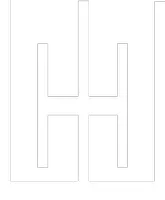FHA vs. Conventional Loan: Which Mortgage Is Right for You?

Deciding between an FHA and a Conventional Loan is an important choice when it comes to buying a house.
While conventional loans are the popular choice for most homebuyers, it's interesting to note that around 40% end up with FHA loans, which are backed by the Federal Housing Administration.
To help you determine which loan is more suitable for your situation, here is a closer look at each option, including their unique advantages and the qualifications you'll need to meet (which can vary depending on the lender).
Conventional Loan
Conventional loan requirements
Minimum down payment: 3% to 20%
Minimum credit score: 620
Maximum debt-to-income ratio: below 50%
Conventional loans have certain requirements that borrowers must meet. Lenders look for individuals with established credit scores, solid assets, and a steady income. As a result, these loans have higher barriers to entry compared to FHA-backed options. To be eligible for a conventional loan, you typically need a credit score of at least 620 and ideally a 20% down payment. However, it's possible to put down as little as 3% if you're a first-time homebuyer. Keep in mind that if your down payment is less than 20%, you'll have to pay private mortgage insurance (PMI), which is an extra monthly fee designed to protect the lender in case of default. The amount of PMI ranges from 0.58% to 1.86% of your home loan. Additionally, most conventional loans require a maximum debt-to-income ratio of 50%. This ratio compares the amount of money you owe, including student loans, credit cards, car loans, and potentially a home loan, to your income. For example, if your household's take-home income is $5,000 per month, you should not spend more than $2,500 per month on your mortgage and other debts.
Conventional loans offer several advantages. If you provide a down payment of at least 20%, you won't need to pay mortgage insurance. These loans also have higher limits compared to FHA loans, which are restricted by county limits. Additionally, conventional loans are typically processed faster than FHA loans.
Conventional loan advantages
- Conventional loans don’t require mortgage insurance as long as you put down at least 20%
- Conventional loans can cover higher loan amounts than FHA loans, which are restricted to county limits
- Conventional loans, on average, are processed faster than FHA loans

FHA Loan
FHA loan requirements
Minimum down payment: 3.5%
Minimum credit score: 580
Maximum debt-to-income ratio: 43%
FHA loans are a great option for first-time buyers or individuals with lower credit scores and limited funds. These loans are insured by the Federal Housing Administration, providing lenders with security in case borrowers default on their mortgage. This allows lenders to work with riskier borrowers while still helping them achieve homeownership, even in less-than-ideal circumstances. To qualify for an FHA loan, you need a minimum down payment of 3.5% and a credit score of 580. Applicants with lower credit scores, such as 500, may still be considered, but they will need a down payment of at least 10%. FHA loans also have debt-to-income requirements of less than 43%. For instance, if your monthly income is $5,000, your mortgage and other debt payments should not exceed $2,150.
While FHA loans can be beneficial for homebuyers who may not qualify for a conventional loan, they do have some disadvantages. The loan amount is usually capped, limiting your buying power. Currently, the upfront mortgage insurance premium is about 1.75% of the loan amount, and there is also an annual mortgage insurance fee of approximately 0.85% throughout the life of the loan unless you refinance into a conventional mortgage.
FHA loan advantages
- FHA loans have lower down payment requirements (3.5%)
- FHA loans have lower credit score requirements (as low as 580 for qualified borrowers)
- FHA loans have low DTI requirements of 43% or less
FHA vs. Conventional Loan: Which should you pick?
When deciding between an FHA and a conventional loan, it's generally recommended to opt for a conventional loan if you meet the qualifications and can afford it. Conventional loans have fewer restrictions and are processed faster. However, if you have a lower credit score, limited down payment, or income, an FHA loan may be your best or only option.
To determine your eligibility, consult with your lender or use an online home affordability calculator to get an estimate of whether an FHA or conventional loan would be the right choice for you.
Categories
Recent Posts










GET MORE INFORMATION


